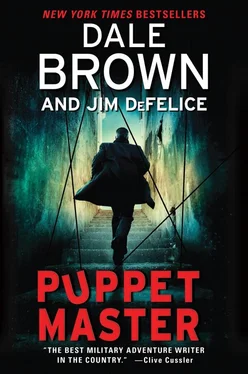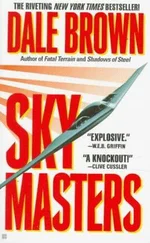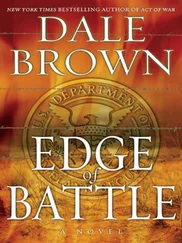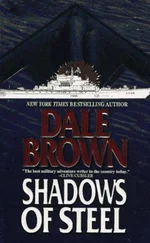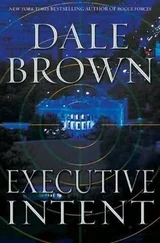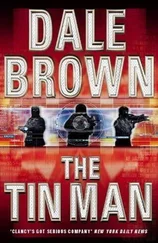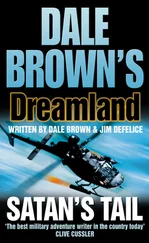Don’t trust too much. This is always the stage where things are most vulnerable. You get overly optimistic and forget to be suspicious. Paranoia is not a bad thing.
Paranoia did serve him well, but so did optimism. At the moment, Tolevi was feeling almost invincible. He knew he had to guard against overconfidence, but on the other hand, wasn’t confidence necessary for victory?
The de facto partition had made it difficult to get money transfers into Donetsk from anywhere but Russia. Tolevi called a man in Moscow who he knew would lend him the ten thousand euros he needed to satisfy the prison administrator, with another forty on call just in case.
The only problem was his interest rate — one hundred percent, compounded weekly.
The CIA was good for it. Tolevi hoped. If not, it would come out of the butcher’s bounty.
Agroros Bank had recently opened a branch in Donetsk. Tolevi spent an hour and a half establishing an account there, using his Russian papers. The bank official was friendly until they got to the final set of forms, which asked what business the account holder was in.
“Importing,” said Tolevi. “Medicines, mostly.”
“From?”
“South America.”
“This is what you do?”
“Yes.”
The man picked up the papers and went into the back. It wasn’t clear what the objection might be. As the minutes ticked by, Tolevi considered whether he might be better off just leaving. But that would mean he’d have to give up getting Olak, give up on the million dollars the Agency was going to pay him for getting him out.
The money or your life?
It’s not going to come to that.
Tolevi sat for nearly twenty minutes before the clerk emerged with another man, whom he introduced as the branch president.
“You are an importer?” asked the president.
“I have arrangements with friends in Moscow,” Tolevi told him. “We have papers from the trade ministry.”
“Can I see them?”
“They’re at the hotel.”
“You ship medicine?”
“Aspirin, things like that.”
“Nothing else?”
“Coffee.”
The branch president stuck out his hand. “Thank you very much for using us.”
Smart Metal Headquarters, Boston — morning
It was Jenkins, called to the scene by Bozzone and Johnny Givens, who connected the attack on Massina with the forged entry at the building. The men who’d kidnapped him had been after his ID card; they’d copied it and returned it, along with everything else in the wallet. Massina had stopped his credit cards but hadn’t given the ID a thought. Its embedded data has been copied and used to get in.
“Basic mistake on my part,” said Bozzone as they debriefed what had happened. “I should have had the entire system reprogrammed.”
“We need to update our security,” said Massina. “I’ll take the blame. We’ll fix it.”
“And we need people in the building on Sundays,” said Bozzone. “The automated systems aren’t enough.”
Massina frowned. But Bozzone was right; having people in the loop did help deal with the unforeseen.
Sometimes.
“We’ll talk about it Monday,” he said. “Right now, I have to get to mass.”
* * *
Jenkins left the Smart Metal building feeling like he was rocket propelled. They had Stratowich on more than a dozen charges, from attempted murder down to breaking and entering. They could probably find a jaywalking charge in there, too.
Stratowich, a quick check showed, had definite connections to the Russian mafya.
And among his “possible associates” was Gabor Tolevi.
Bingo.
With all due respect to Massina, he’d obviously been taken in by the girl’s story. Tolevi undoubtedly had put her up to it, right before vamoosing. She might even know where he was; Jenkins recognized crocodile tears when he saw them.
Maybe he wouldn’t be able to touch Tolevi ultimately. But he’d be able to pressure him, and besides, Stratowich wouldn’t know that — he could tell him that Tolevi had caved. So Stratowich would have all the reason in the world to give up every SOB in the Russian mob to him.
Including the SOB who had killed his brother.
That was the real goal — not the ATMs, not even the mafya.
Burglary was a local crime, and Stratowich was taken to Boston police headquarters for questioning; he’d be processed from there. Jenkins woke the Bureau’s Boston PD liaison up and had her clear the way so he could question him before arraignment. That was a coup on her part, since the locals were always suspicious that the Feds would swoop in and grab their case from them.
They certainly had a lot of firepower on it: Jenkins counted three different lieutenants in the hallway outside the interrogation room, and the DA himself was inside making sure all the legal niceties were observed.
It was because of Massina. He was well liked, well respected… and rich. A trifecta when it came to police concern.
Jenkins made a beeline for Bill Grady, the homicide lieutenant in charge. Grady was a forty-something veteran whom Jenkins had met at a St. Patrick’s Day celebration some years before; their paths had crossed a few times since.
“I’m not here to steal your case,” Jenkins told him. “Your suspect is involved in something I’m working on, and I’d love to piggyback if I can. All credit to you.”
“I heard your guy was the one who made the actual grab on the roof,” said Grady.
“That’s right. He was talking about what a great job Boston PD did surrounding the building and getting him down.”
“We can share.”
“I appreciate that.”
“Just remember, it’s a two-way street,” said Grady.
“Absolutely.”
Grady clearly wanted something, and not something small. Payback would undoubtedly hurt. But Jenkins would worry about that down the road.
Jenkins watched the interrogation via a closed-circuit camera. Stratowich had invoked his constitutional right and didn’t look particularly worried, sitting silently, arms crossed, refusing to talk.
Maybe that’s why they don’t mind me being here, Jenkins thought. They’re not getting anything out of him anyway.
“Let me try a bit,” he told Grady. “Maybe I can loosen him up.”
“We’re not offering him a deal,” said the DA.
“I wasn’t going to suggest that. Just that he might be able to make things easier on himself if he talked.”
“We’re not offering a deal.”
“If you could roll up the entire Russian mob in Boston,” said Jenkins, “you wouldn’t offer him a deal?”
“Well…”
“But who would get the credit?” said Grady. “The Feds.”
“There would be enough credit on something like that to go around,” said Jenkins. “A lot of credit.”
“Only if the Boston PD was the lead agency.”
“And the prosecutions were local,” added the DA.
“Look, I don’t know the politics of it,” said Jenkins. “But I do know that this guy is connected to the guy I’ve been pursuing on an ATM case. And that he is in deep with the Russian mob.”
“We know that,” said Grady.
“So — you’re talking, what, at least two dozen other indictments. And you got the guy on attempted murder.” Jenkins shrugged. “You have a triple already. Why not go for a grand slam?”
Starobeshevskaya village — the next morning
A small bit of Tolevi’s paranoia had returned — enough to make him cautious when they saw the van parked outside the bar where he had arranged to meet the deputy mayor.
“Drive us around the block,” he told Dan.
Читать дальше
